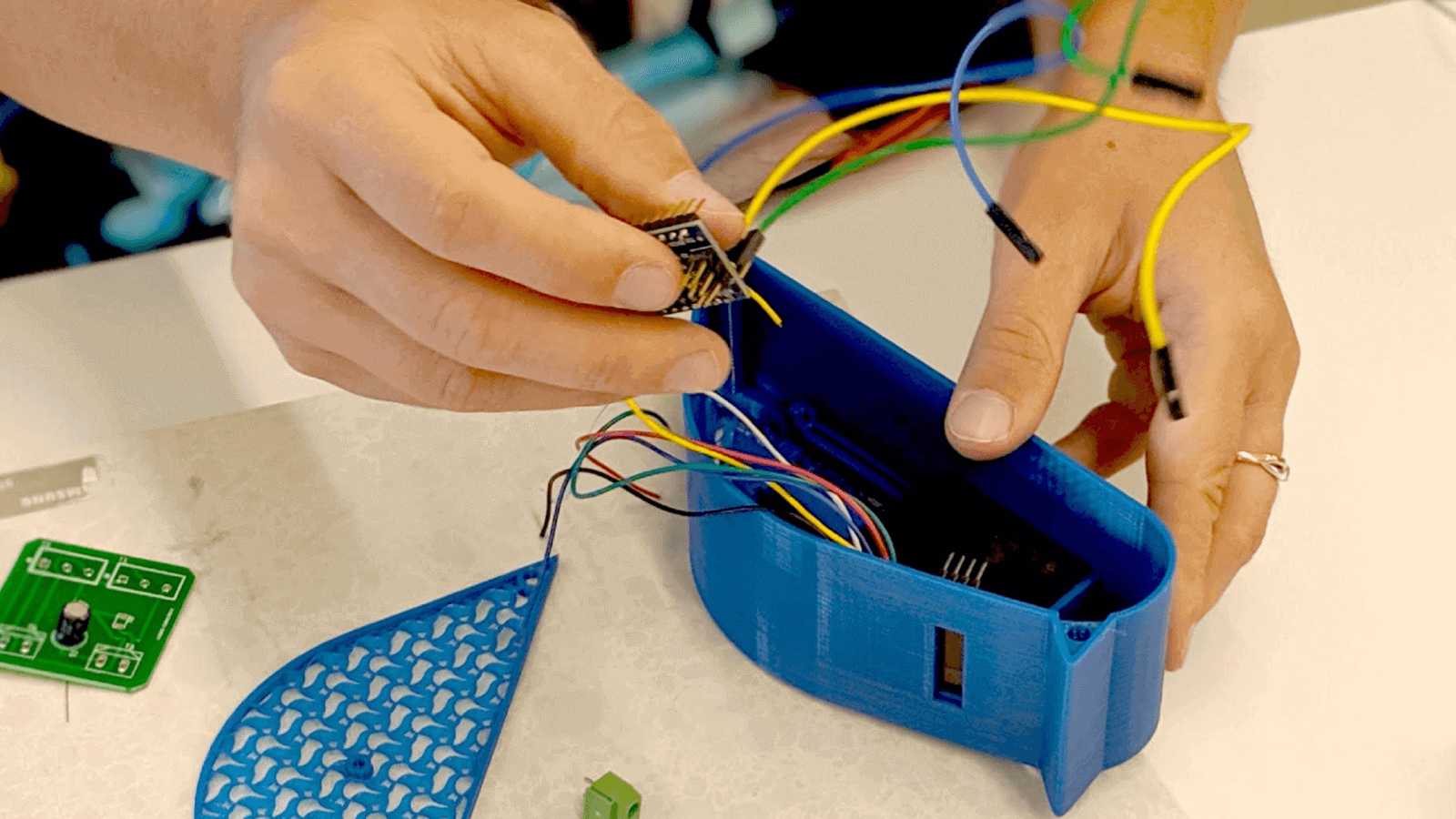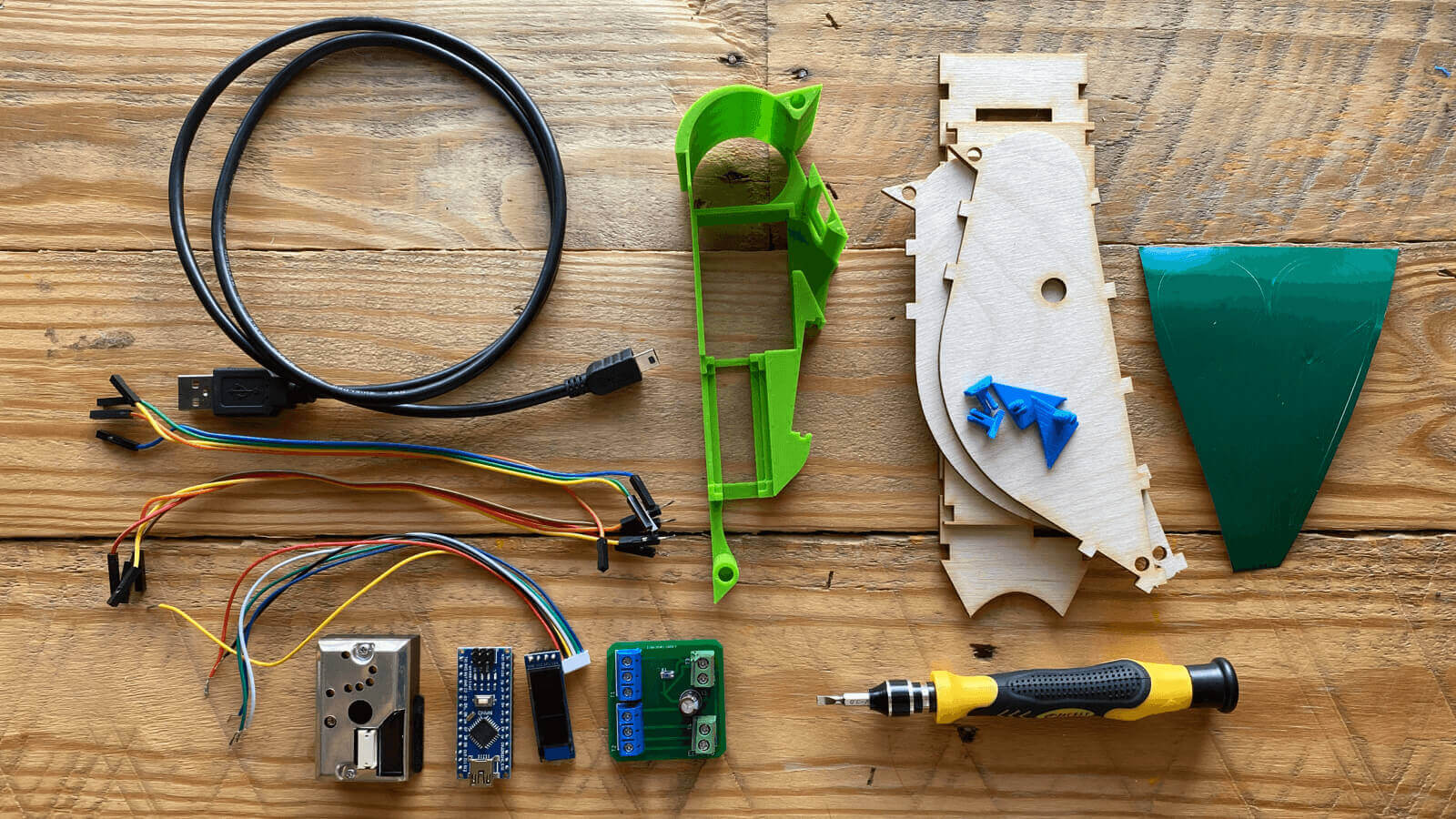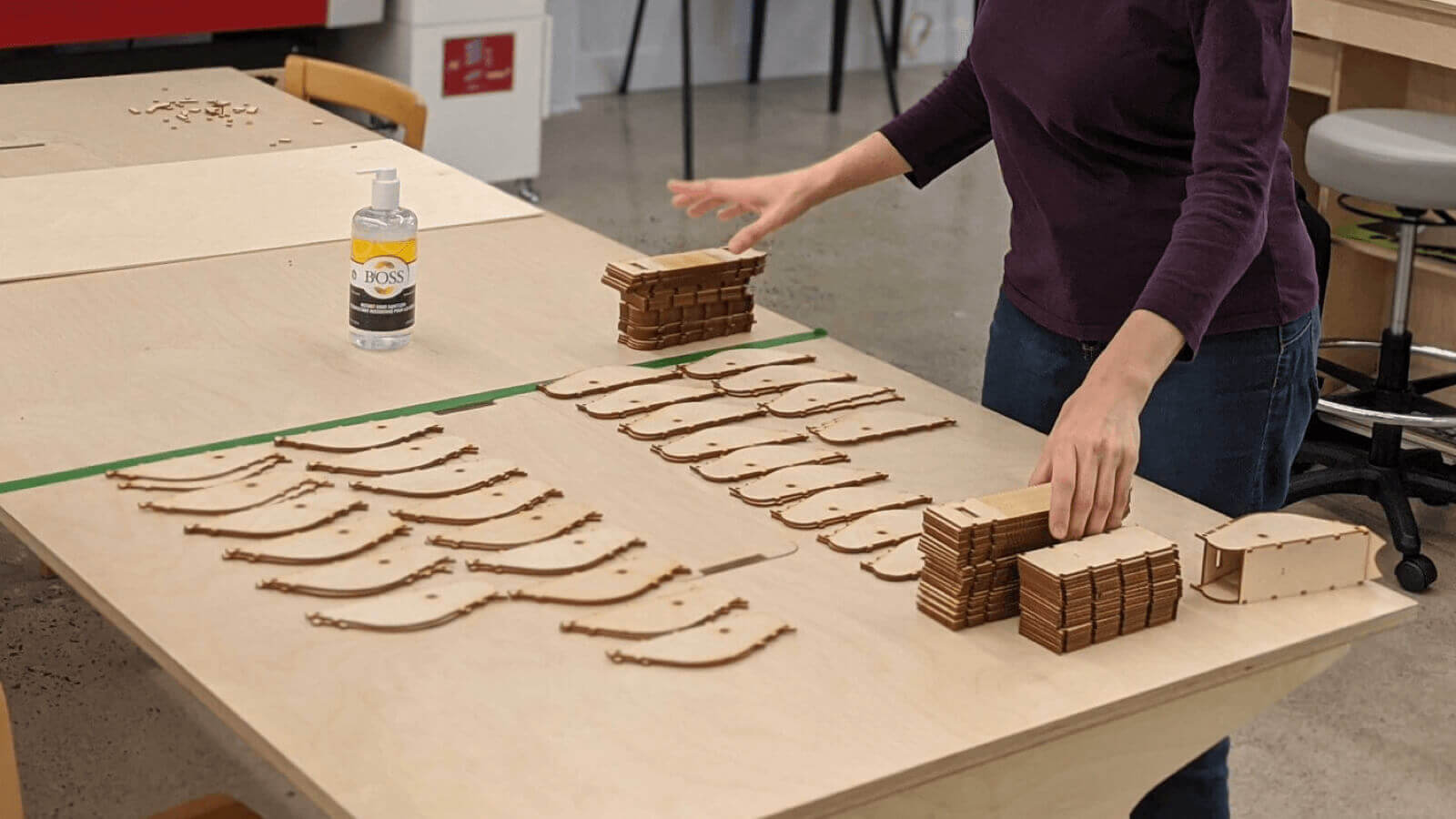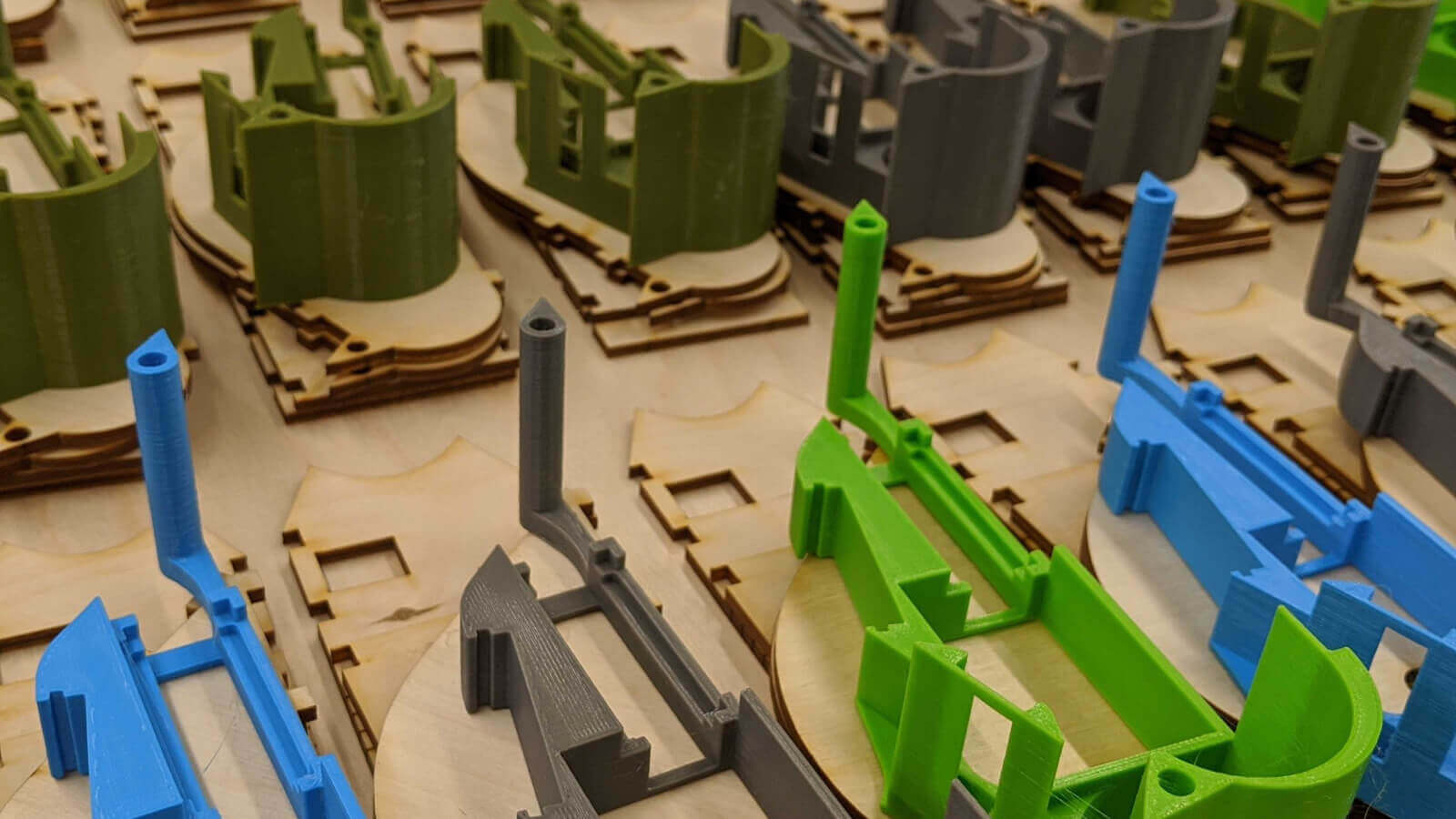Your cart is currently empty!
Canari

Project description
Communautique, as a technology democratization organization, aims to create a space for conversation about open data, sensors and their uses. The Canari Project aims to develop practical training content for the creation and appropriation of local data to resolve urban issues such as air quality.
Production files are downloadable from Github
The process in brief
Use Fab Labs (citizen spaces) to take action on climate change:
1- A “Make the invisible visible” environmental awareness walk
2- Building a tool for citizen capture
2.1- Introduction to the Fab Lab and digital fabrication technology
3- Installation and capture (contribution or creation of citizen data)
4- Data feedback and analysis
5- Search for solutions
6- Iterative process for continuous improvement

Our needs
Mobilizing local residents around the issues of sensors, data and the environment (air quality) will help develop data literacy. The Canari project aims to contribute to
- Developing data literacy
- Connecting citizens to notions of climate change (making the invisible dimension of climate change visible in local anchors). Climate change is all too often abstract, but for many citizens, having breathable air in our city is the environmental priority.
- Valoriser le savoir scientifique en recueillant les données par une méthodologie de recherche
To support citizens in their data collection process, a “data squad” - made up of people with complementary skills (technical, anthropological/ethnological, communication/animation) - will be formed to animate and support participation in the project. This small field team plays a crucial “socio-technical” mediation role - in close proximity to project participants: it facilitates appropriation of the instrumentation, identifies opportunities for intervention, and supports the processes of data collection, analysis and interpretation. The squad is also responsible for pooling the information collected (in compliance with confidentiality and privacy frameworks and rules), with a view to building a citizens' data pool on the environment.
Data squad time:
- they support the project launch
- they support Fab Lab production of the sensors
- weekly support/ visit - sensor training and virtual support/ through the platform
Residents participating in the project are committed:
- over a two-month period via a commitment charter on the imperative of personal data protection and legislation
- to have available a measurement kit containing a fine particle measurement sensor and documentation on the subject
- assess personal exposure to fine particles in the air around us
- think about how you can improve your outdoor air quality
- raise your own awareness and that of others by talking about it around you
- take part in events with experts

Project background and context
We are currently witnessing a profound transformation on a global scale, fuelled by technology and digital media, and stimulated by data and information flows. This transformation has enormous potential to enhance the transparency, accountability, efficiency, agility and effectiveness of governments, civil society organizations and the private sector, and to support the design, implementation and evaluation of global sustainable development goals. Open data is at the heart of this global movement. However, training in the use of data is an essential and all too often neglected prerequisite for the wider use of data.
With the creation and use of open data offering great potential for taking ownership of one's City, Communautique, as a continuing education organization committed to the global Fab City movement, is proposing the Canary Project. The project will demonstrate the role of Fab Labs, which for several years now have been organizing activities around digital fabrication laboratories and setting up a digital fabrication network in Quebec:
- in skills and knowledge management at individual and collective level
- as a space for mediation between residents and social issues
- facilitate citizen participation and the creation of a community of practice
- to consider technology as a tool for shaping the territory differently
- to foster the inclusive development of solutions and innovation
The sentinel canary
“In the 19th century, when coal mining was in full swing, it was common to find a canary at the bottom of a mine. Highly sensitive to toxic gas fumes, which were impossible to detect for people lacking modern equipment, the little yellow bird served as a reference tool. So when it died or fainted, miners would hurry out of the mine to avoid an imminent explosion or poisoning.” Source : Forgotten stories http://www.histoiresoubliees.ca/article/la-mine-federale/les-canaris-dans-les-mines-de-charbon
General objective
The Canari Project is helping to develop digital and environmental literacy, and to get citizens involved in measuring air quality by helping them build micro-sensors. Through training in the challenges of producing and using open data, it will provide concrete tools for citizens, including newcomers, improving their skills and knowledge to use the Internet and data in a meaningful and safe way.

BOM nomenclature
Elements
1x Jumper Cable
1x USB Cable
1x Arduino Nano
1x OLED Screen
1x Sensor PM2.5
1x PCB
1x 150 Ohms Resistor
1x Cap 220 uF
2x Terminal Block 5mm / 3pos
2x Terminal Block 5mm / 2pos
Other
Fishing line (30cm)
3D prints (heart, press pin set -bec & tail mirror) => see folder 1_3Dprint
Laser-cutting the outer profile => see folder 3_Laser
Fender vinyl cut => see folder 2_Vinyl
Screwdriver